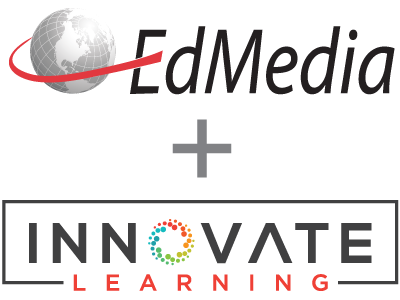
Learning through Playing: The Relationship between Learning Outcomes and Experiences
PROCEEDINGS
Meng-Tzu Cheng, TzuFen Su, Wei-Yu Huang, Jhih-Hao Chen, Li-Ying Liu, National Changhua University of Education, Taiwan
EdMedia + Innovate Learning, in Victoria, Canada ISBN 978-1-939797-03-2 Publisher: Association for the Advancement of Computing in Education (AACE), Waynesville, NC
Abstract
This study reports on the development of a serious educational game (SEG) entitled HUMUNOLOGY and empirically and preliminarily examines student perceptions toward the use of HUMUNOLOGY and learning outcomes. A total of 65 Taiwanese middle school students participated in this study and a quasi-experimental approach with a one-group pretest/posttest research design was used. These students learned through playing HUMUNOLOGY for two weeks. The results of the paired t test shows that after using HUMUNOLOGY, students performed significantly better on knowledge assessment than pretest (t=-8.21, p<0.01), implying students did learn from playing HUMUNOLOGY. Moreover, the results of the pretest, perceived ease of use, as well as peer learning and help-seeking behaviors were the three positive variables of predicting a student’s learning achievement on the posttest. The only negative one was perceived playfulness.
Citation
Cheng, M.T., Su, T., Huang, W.Y., Chen, J.H. & Liu, L.Y. (2013). Learning through Playing: The Relationship between Learning Outcomes and Experiences. In J. Herrington, A. Couros & V. Irvine (Eds.), Proceedings of EdMedia 2013--World Conference on Educational Media and Technology (pp. 1882-1888). Victoria, Canada: Association for the Advancement of Computing in Education (AACE). Retrieved August 13, 2024 from https://www.learntechlib.org/primary/p/112225/.
© 2013 Association for the Advancement of Computing in Education (AACE)
References
View References & Citations Map- Annetta, L.A. (2008). Serious educational games. The Netherlands, Sense Publishers. Annetta, L.A., J. Minogue, et al. (2009). "Investigating the impact of videogames on high school students' engagement and learning about Genetics." Computers and Education 53(74-85). Cheng, M.-T. And L. Annetta (2012). "Students’ learning outcomes and learning experiences through playing a Serious Educational Game." Journal of Biological Education: 1-11.
- Krathwohl, D.R. (2002). "A revision of Bloom's Taxonomy: An overview." Theory into Practice 41(4): 212-218.
- Li, Q. (2010). "Digital game building: learning in a participatory culture." Educational Research 52(4): 427-443.
- Lim, C.P. (2008). "Global citizenship education, school curriculum and games: Learning Mathematics, English and Science as a global citizen." Computers& Amp; Education 51(3): 1073-1093.
- Mayer, R.E. (1997). "Multimedia Learning: Are We Asking the Right Questions?" EDUCATIONAL PSYCHOLOGIST 32(1): 1-19.
- Radoff, J. (2011). Game On: Energize your business with social media games. Indianapolis, IN, Wiley Publishing. Ricci, K.E., E. Salas, et al. (1996). "Do computer-based games facilitate knowledge acquisition and retention?" Military Psychology 8(4): 295-307.
These references have been extracted automatically and may have some errors. Signed in users can suggest corrections to these mistakes.
Suggest Corrections to References